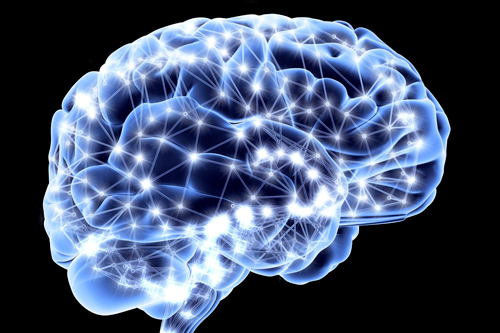 For almost three decades I was one of the least present people on the planet. A life-altering trauma turned the world both inside and outside my head into such a painful experience that checking out was more appealing than checking in. Luckily, a series of events taught me to wise up, double down and stay in the present moment. The benefit: Now I actually enjoy, create and engage in my life, a process that has enormously changed it for the better.
For almost three decades I was one of the least present people on the planet. A life-altering trauma turned the world both inside and outside my head into such a painful experience that checking out was more appealing than checking in. Luckily, a series of events taught me to wise up, double down and stay in the present moment. The benefit: Now I actually enjoy, create and engage in my life, a process that has enormously changed it for the better.
Learning how to rewire your brain to stay in the present can start with techniques like meditation. Solid scientific research shows how these daily practices benefit the brain by decreasing stress hormones, increasing immunity and improving cognition, among other things.
If you’ve already opted in or out of these activities and are looking for new ways to stay in the present, then test-drive the following ideas. Based on brain science concepts related to memory processing, biochemical change, sensory experience and psychological perception, these six things you can do to stay in the present offer a variety of entry points to begin reclaiming your ability to be in the now:
1. Slow down. Your subconscious mind processes 20 million bits of information per second, while your conscious mind processes only 40 bits of information in the same amount of time. The faster you do anything, the less chance your conscious mind has of noting and digesting the information. Slowing down your thoughts and physical pace afford your conscious mind more of an opportunity to be aware of and connected to the moment you’re in.
2. Play. Among the numerous benefits of engaging in a playful activity are the release of mood-elevating endorphins, improved sense of connection and community, and increased development of trust, adaptability and learning—all experiences that make the present feel safe, interactive and pleasurable. The happier you are, the more likely you will be to connect to the present moment—and stay there.
3. Make an effort to be conscious. Your subconscious mind runs 95% of your life. Being present means making the effort to be more aware of and acting upon the other 5%: your deliberate wants and needs. Asking yourself “What do I want?” throughout the day attunes you to yourself, your desires and also your action-taking ability in the moment.
4. Deliberately experience the moment through your senses. Your nervous system perceives internal and external details and circumstances and then relays this information to your brain. The more you notice your mind and body’s response to sensory information, the more present you become. Asking yourself “What am I feeling right now?” attunes you to your second-by-second experience.
5. Notice details of the moment. Memory processing happens through stages of encoding, storage and retrieval. During the first stage, experiences are encoded through visual, acoustic and semantic details. Connect to the actual memory-making moment by taking the time to acknowledge and identify what you see and hear, plus what the moment means to you.
6. Share the moment. One of the main reasons we don’t stay present is because the stress of the moment is too much to handle. Research has shown that we’re more likely to report being able to handle a stressor when a friend is nearby. In their ability to make us feel calm and able, psychosocial resources (ie, the presence of a friend or loved one) make the present moment more manageable, which makes sustaining a connection to it more manageable, too.
Cultivating an ability to stay in the present requires new actions and a change in personal philosophy. When we disconnect from the present, we allow an anti-present philosophy to guide our actions. Seeking to rewire your brain in the opposite direction requires a pro-present philosophy. For me, the new paradigm was this: Stop being driven by fear. Dedicating myself to a philosophy devoted to creating a sense of being powerful rather than powerless allowed me to begin connecting to the present moment in a new way.
The international present-moment guru, Eckhart Tolle, offers another kind of philosophy: “Realize deeply that the present moment is all you ever have. Make the Now the primary focus of your life.” Whether you borrow a philosophy or develop your own, connecting how you rewire your brain to the reason such change is meaningful to you can create long-lasting change.
Click here to get inspired by Rose’s easy steps to positively change your mind



1 Comment